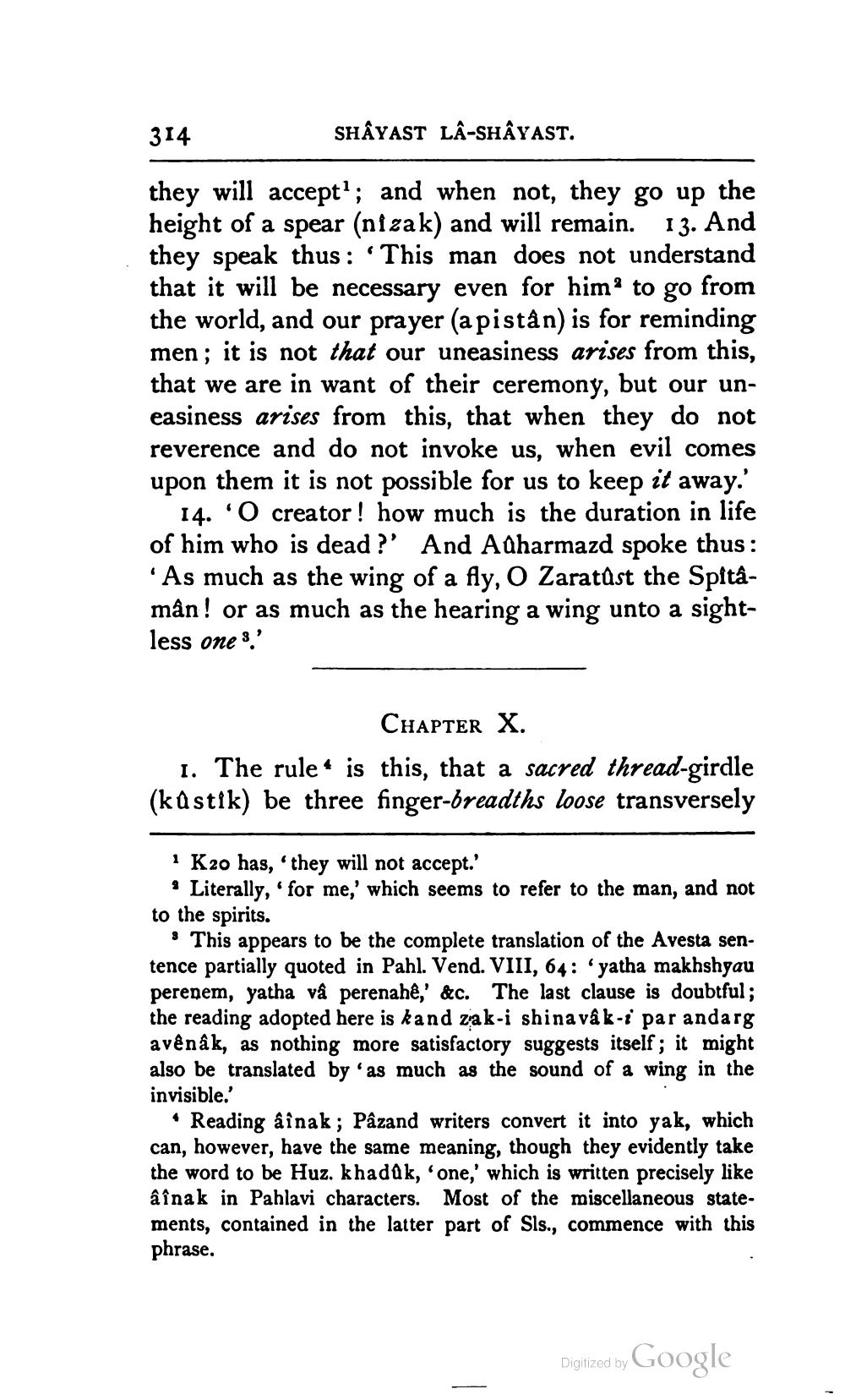________________
314
SHẤYAST LÂ-SHAYAST.
they will accept"; and when not, they go up the height of a spear (nizak) and will remain. 13. And they speak thus: This man does not understand that it will be necessary even for him to go from the world, and our prayer (a pistân) is for reminding men; it is not that our uneasiness arises from this, that we are in want of their ceremony, but our uneasiness arises from this, that when they do not reverence and do not invoke us, when evil comes upon them it is not possible for us to keep it away.'
14. O creator ! how much is the duration in life of him who is dead ?' And Adharmazd spoke thus: *As much as the wing of a fly, O Zaratust the Spitamân! or as much as the hearing a wing unto a sightless ones.'
CHAPTER X. 1. The rule is this, that a sacred thread-girdle (kastik) be three finger-breadths loose transversely
· K20 has, they will not accept.'
• Literally, 'for me,' which seems to refer to the man, and not to the spirits.
. This appears to be the complete translation of the Avesta sentence partially quoted in Pahl. Vend. VIII, 64: ‘yatha makhshyau perenem, yatha vå perenahê,' &c. The last clause is doubtful; the reading adopted here is kand zak-i shina vâk-i par andarg avênâk, as nothing more satisfactory suggests itself; it might also be translated by as much as the sound of a wing in the invisible.
• Reading ainak; Pâzand writers convert it into yak, which can, however, have the same meaning, though they evidently take the word to be Huz. khadůk, 'one,' which is written precisely like âînak in Pahlavi characters. Most of the miscellaneous statements, contained in the latter part of Sls., commence with this phrase.
Digitized by Google




